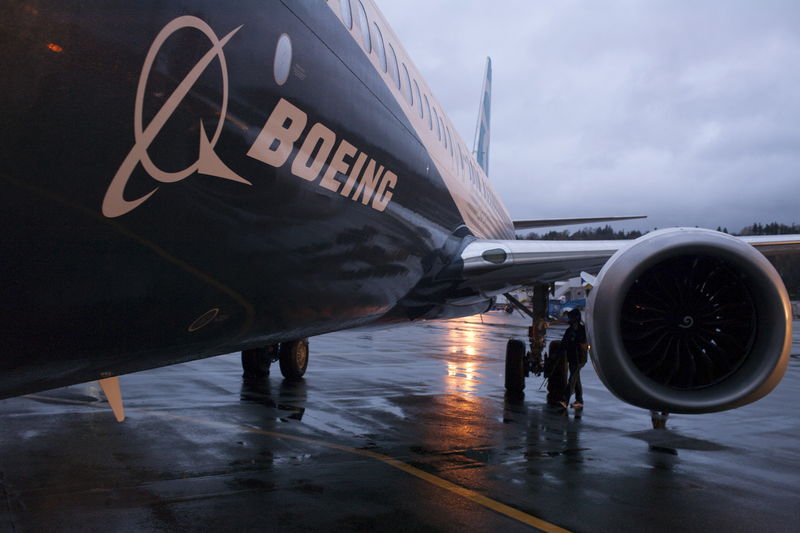Investing.com’s stocks of the week
Boeing’s (BA) shares slid 2% in premarket trading Monday after the jet maker announced that additional work is required on approximately 50 737 MAX airplanes awaiting delivery.
The issue, which could lead to potential delays in near-term deliveries, is due to Spirit AeroSystems (NYSE:SPR), a supplier, identifying two improperly drilled holes in some fuselage sections.
The problem, confirmed by Boeing (NYSE:BA), came to light following a Reuters inquiry, with industry insiders reporting a spacing issue in the drilling of holes on a window frame of some aircraft.
Despite the scrutiny Boeing has faced from both regulators and airlines following an incident on January 5 involving a door plug malfunction on a 737 MAX 9, the company assured that the safety of the aircraft is not compromised and that currently, operational 737s can continue flying.
"This past Thursday, a supplier notified us of a non-conformance in some 737 fuselages. I want to thank an employee at the supplier who flagged to his manager that two holes may not have been drilled exactly to our requirements," Boeing Commercial Airplanes CEO Stan Deal wrote in a letter to employees referring to Spirit, the sole 737 fuselage supplier.
"While this potential condition is not an immediate flight safety issue and all 737s can continue operating safely, we currently believe we will have to perform rework on about 50 undelivered airplanes," Deal said.
Although the identified issue does not pose a direct threat to flight safety, allowing all 737s to operate as normal, it is anticipated that approximately 50 planes awaiting delivery will require additional work, Deal noted.
Joe Buccino, a spokesperson for Spirit, told Reuters that the problem, which deviates from engineering norms, was discovered through their comprehensive quality management program by a team member.
Deal also indicated that Boeing intends to allocate several "factory days" at its Renton 737 manufacturing facility near Seattle this week to address the issue of misaligned holes and complete other pending tasks. These dedicated days will enable the workforce to focus on particular issues while pausing their regular activities, without having to halt production entirely.
The total time required for these additional efforts is anticipated to be determined in the near future.
